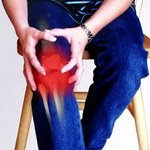 Continued from Part 2...
Continued from Part 2...People were quiet in the lines. I bet they were confused and struggling on what is going to happen soon: Watching own hard-earned money to catch fire and burn to ash!
Looking at the doubtful crowd, I knew I've made a decision: No matter what happens, I WILL NOT BURN MY MONEY! I have full control and am held accountable for my own money, and thus my finance, and hence my own life for that matter of fact. Nobody is going to change, or can change, that. I know what I want, and I know what I am responsible for. I will not simply follow what other people will do without questioning the logic, feasibility and suitability for my own good. What good will it do to me if I burn my money? I am a hero? What benefits or values will I get in return? Does it help me to increase my wealth or other thing? NO! I'm just mere stupid and dumb if I do that...
Someone in the line was ready to burn his RM100 note. Everybody was holding on their breath...
"OK. Stop! Now everyone go back to your seat and sit down. This is just a hoax!"
Wow… the crowd cheered with mixed feelings. After everybody had been seated, the speaker asked if anybody would like to share how they felt before and after this exercise. Many people put up their hands, but due to time constrains, a few were being picked. Some people said they were confused. Some said they changed the RM100 note to smaller value when asked to burn the money. And some were excited about it.
"You will never ever burn your money," said the speaker. "Here are a few lessons we learnt in this exercise," he continued.
"First is about honoring. Money is just like a person. You respect money, just like you respect other people. You don't put anybody into fire and burn it. You don't burn your money either."
"Second is about the burning. This is a metaphor. If you would burn the money just now, you will be burning your money easily in your daily life too. That is, you spend money with no control. Rich people use money to invest and for their education, not burning."
"Next is about responsibility. You're responsible for your chosen choice. Don't blame other people for what you're today, if you are not wealthy yet. You should be responsible for your own financial account. If you wanted to burn your money just now and you always wonder why you are not rich yet, now you know why."
"The fourth lesson is about proving. Why did you choose to burn your money just now? Were you trying to prove to other people for something? Were you trying to show off? Because other people were going to burn their money so you wanted to prove that you could afford that too? They will be broke, and you want to be like them too?"
"Last but not least is about your integrity. Some people changed the note halfway. We are not burning our money in this exercise. But if you changed your note halfway, you broke your promise to yourself. You will be chickened out whenever something happens."
What have you learnt?














